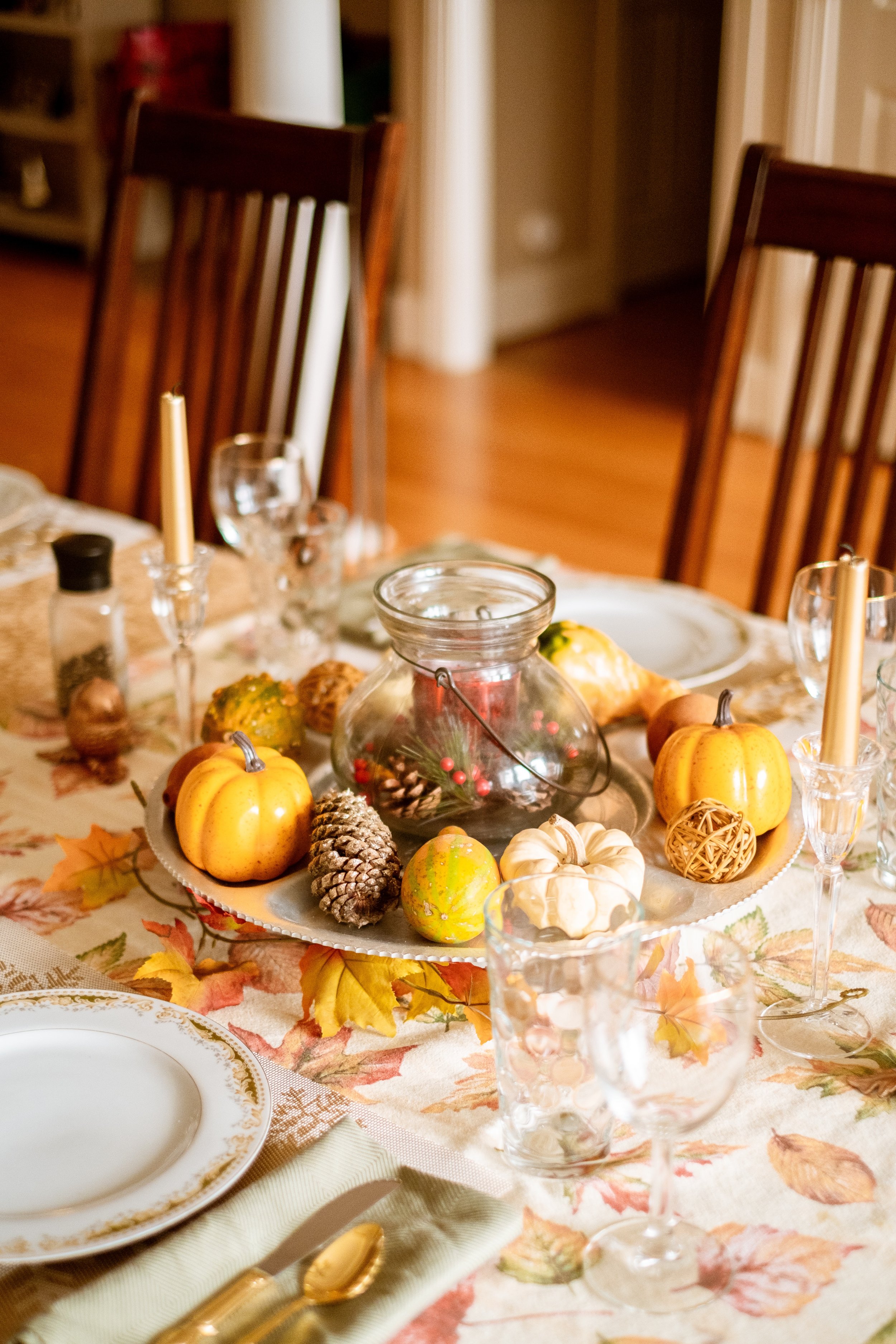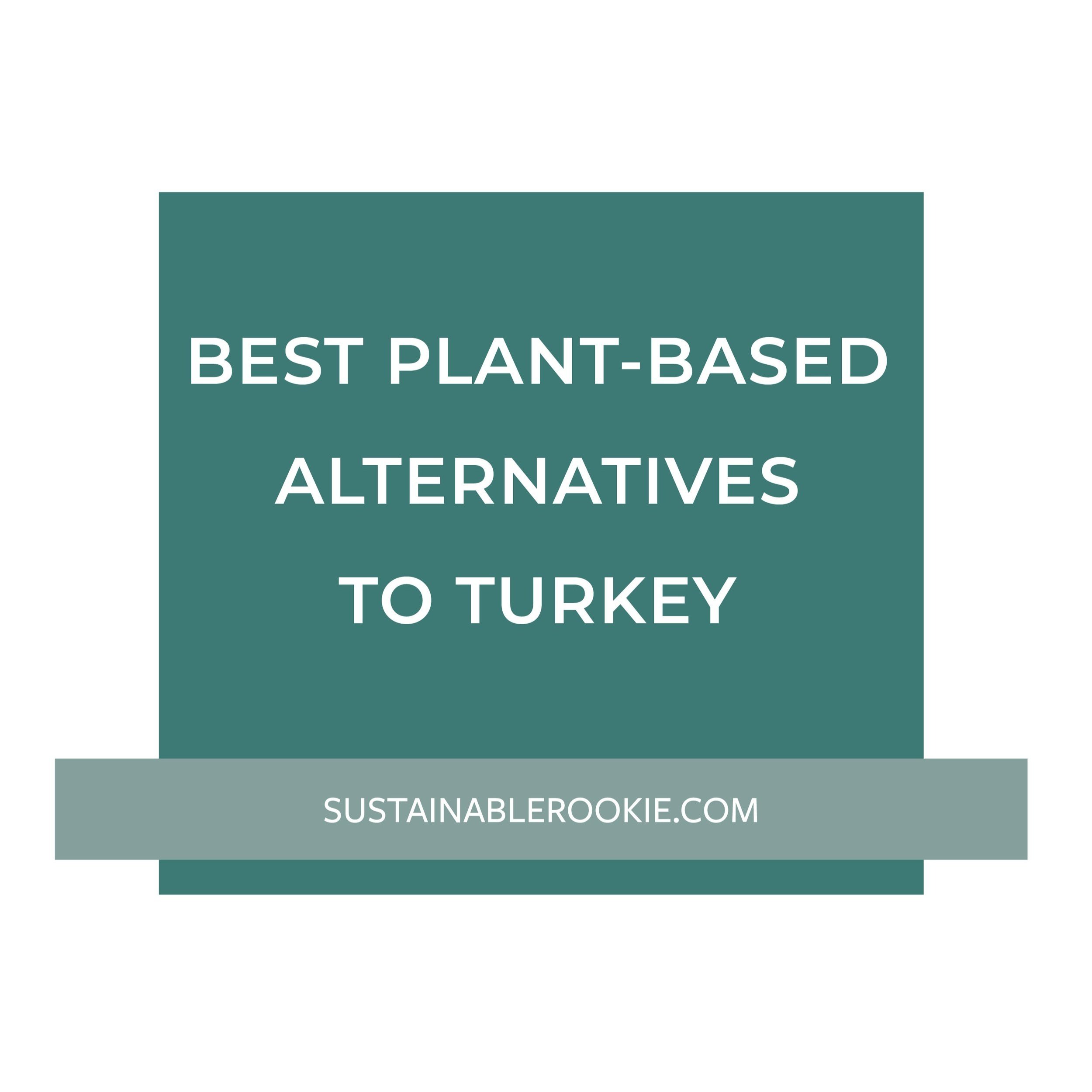Sustainable Thanksgiving: 9 Tips To Celebrate It Consciously
Thanksgiving is a holiday we don’t have in Argentina, so I’ve only celebrated it a couple of times in my life. I moved to the U.S. almost four years ago and have since gotten together with family and friends to eat homecooked food in the garden and share a nice moment. It’s a holiday that feels like a second Christmas (or like a preview of what it will be like), which I love, since Christmas has always been my favorite holiday. There’s something about the air during that time, everything’s lighter and brighter, and Thanksgiving is no exception.
As any holiday, however, Thanksgiving can be wasteful. As sustainability is so important, it’s crucial that we find ways in which we can be more respectful of the environment. Celebrations shouldn’t cost the earth, that’s why I’ll share with you some tips to have an eco-friendly Thanksgiving.
10 TIPS TO HAVE AN ECO-FRIENDLY THANKSGIVING
1. Don’t throw away food
Did you know that Thanksgiving is one of the biggest food-waste days of the year? According to NRDC, about 200 million pounds of turkey are thrown out during the Thanksgiving holiday week each year. This is wasteful on so many levels, not to mention we’re talking about sentient creatures being killed and then disposed of, besides all the resources that are involved in the process! It’s estimated that those wasted resources would equal the water to supply New York City for 100 days, and the carbon footprint of 800,000 cars driving from Florida to L.A.
To avoid this, don’t cook more than you can eat–nobody needs twenty different food items. And you certainly don’t need a turkey. Also, when cooking, use what you already have in your fridge or cupboards, so it doesn’t go to waste. Consider you’ll probably have some leftovers afterwards, so the best thing you can do to avoid food waste is to empty it beforehand. Nonetheless, leftovers sometimes are unavoidable, so to make the best out of them, ask your guests to bring reusable containers for them to take leftovers home. You can also plan beforehand with all guests to avoid having more food than is needed (and make sure there won’t be five people taking the same dish).
2. Serve plant-based food
I’ve explained in another post why a plant-based diet is more sustainable, so eating plant-based dishes during Thanksgiving is a great way of celebrating it sustainably. However, we shouldn’t only consider the lower environmental impact of plant-based meals in contrast to animal-based food, but also the ethical aspect of it. As I mentioned in the previous paragraph, millions of pounds of turkeys are thrown away during the holidays, but have you also thought about how many are eaten? Approximately 46 million turkeys are eaten each Thanksgiving, 22 million on Christmas and 19 million turkeys on Easter–just during those few days (more than 70 billion animals are killed each year for food). Think about the lives of these animals, as well as how much land they occupy, how much water and food they consume. You don’t have to go fully vegan from one day to the other, I believe baby steps could be more efficient (millions of people making small changes is better than one person being perfect), but Thanksgiving is the perfect opportunity to try eating delicious plant-based meals. There are lots of plant-based turkey and meatless roast options at the supermarket. You can also try my vegan mashed sweet potatoes recipe, which is easy to cook in big quantities, so all your guests can enjoy it.
3. Buy local and organic
Another way for our plant-based meals to be more sustainable, is to buy local fruits and vegetables, which means you’re buying food that didn’t have to travel many miles to get to your house. On the other hand, organic food has more nutrients, and is also better for the environment because all the pesticides used for food that isn’t organic pollute the soil and water (and then your body).
4. Buy in bulk
Whatever you decide to cook, you can try buying ingredients in bulk at your local eco store. Some are easier to find than others, like rice and legumes. If cooking isn’t your thing, or you don’t have time for it, apply the same strategy when buying ready-to-eat food, or packaged food. For example, if you’re buying bags of chips, buy the family-size version, which uses less plastic packaging.
5. Cook or buy food you know most will like
This is another tip to avoid food waste during Thanksgiving. I know you might love brussels sprouts covered in Tikka Masala sauce, celery, and coriander, but most people probably won’t like it. As you probably won’t be able to eat it all yourself, it’s going to be thrown away. Stick to popular plates like salads, potatoes, or dips like hummus.
6. Use reusable cutlery
Another way of being more sustainable during Thanksgiving is to use reusable cutlery. This can be challenging if you’re having many guests over, but there are ways. First, the best eco-friendly alternative is to use what you have. If you can’t cover everyone with that, ask a guest to bring some from their home (wash them before you give them back!). You could also buy second-hand, for instance from Goodwill which is a sustainable way to purchase things. As a last option, if you truly need to buy disposable cutlery, try to choose eco-friendly materials like bamboo, and that are easily compostable or biodegrade fast. It’s not the best choice, because it’s still disposable, but better than plastic.
7. Step away from Black Friday and Cyber Monday
At least think about how necessary it is to buy something during Black Friday and Cyber Monday. These days promote overconsumption, and they disguise their sales as incredible opportunities that aren’t to be missed, leading people to buy things they don’t need. Remember, they can be offering you a 30% discount, but if you don’t buy anything at all, you’re saving a 100%. When we take the time to analyze our decisions as consumers, we understand that most purchases are impulsive and unnecessary. Yes, you can buy that computer you’ve been needing for a year, but just leave that orange sweater with balloon sleeves–it’s not worth it. Separate your needs from your wants, and your carefully planned decisions from your impulses.
8. Buy seasonal fruits and vegetables
Buying seasonal fruits and vegetables also means less miles traveled, and better taste. You can check out the Seasonal Food Guide to see what’s on season at a certain place in a certain period. For example, in South Florida (where I live), in late November (Thanksgiving season), some fruits and vegetables that are in season are avocados, bananas, corn, eggplants, green beans, mandarins, oranges, pumpkin, among others.
9. Spend time outdoors
As always, I’m going to recommend spending time outside in nature. I insist on this all the time, because I believe the more time we spend outdoors, the more we get to appreciate nature and how beautiful this Earth is. When we notice that, we take care of it more consciously. We can’t protect something we’re distanced from or that we don’t care about. Have your sustainable Thanksgiving dinner outside in the garden or patio if you can, make the best out of your day off work to go to a local park, step on the grass. Carpe diem under the sun.
It doesn’t matter what your plan is for this Thanksgiving, you can always find ways to celebrate it more sustainably. With these tips, you can have an eco-friendly Thanksgiving that you will remember for years to come. Let me know in the comments if you have any extra tip you would like to share!
Please don’t forget to subscribe to my newsletter to receive more tips on how to be more sustainable and lead a conscious life.








